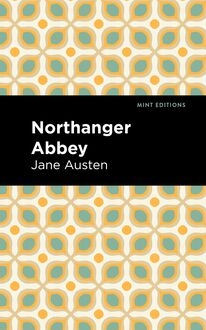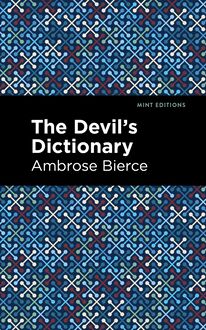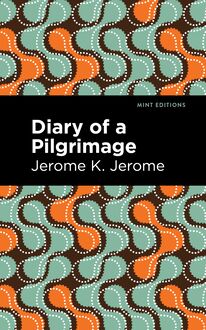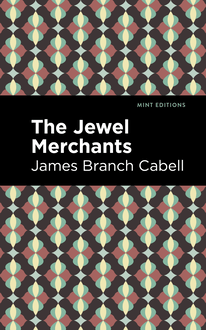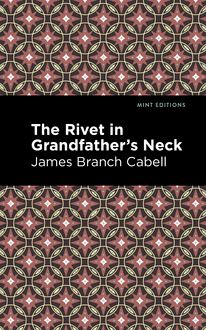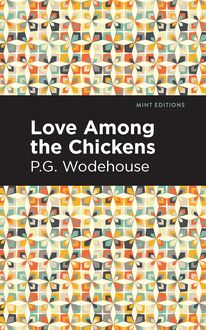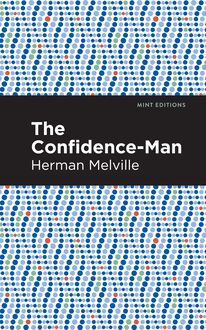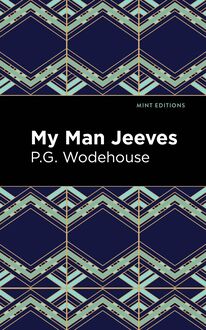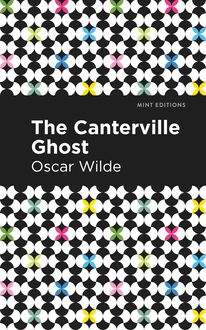-
 Univers
Univers
-
 Ebooks
Ebooks
-
 Livres audio
Livres audio
-
 Presse
Presse
-
 Podcasts
Podcasts
-
 BD
BD
-
 Documents
Documents
-
- Cours
- Révisions
- Ressources pédagogiques
- Sciences de l’éducation
- Manuels scolaires
- Langues
- Travaux de classe
- Annales de BEP
- Etudes supérieures
- Maternelle et primaire
- Fiches de lecture
- Orientation scolaire
- Méthodologie
- Corrigés de devoir
- Annales d’examens et concours
- Annales du bac
- Annales du brevet
- Rapports de stage
La lecture à portée de main

Vous pourrez modifier la taille du texte de cet ouvrage
Découvre YouScribe en t'inscrivant gratuitement
Je m'inscrisDécouvre YouScribe en t'inscrivant gratuitement
Je m'inscrisEn savoir plus
Vous pourrez modifier la taille du texte de cet ouvrage
En savoir plus

Description
The Eagle’s Shadow (1904) is the debut novel of James Branch Cabell, a master of fantasy fiction and an underrated figure of twentieth-century American literature. The novel is significant for being among few of Cabell’s works to take place both around the time of its publication and to be set in the contemporary world. Like many of his works, however, it paints an intricate portrait of romance and power, immersing its reader into a fiction more real than they’d care to admit.
Most of the novel’s action occurs at Selwoode, a recently built mansion located in the English countryside. Following the death of her uncle Frederick, Margaret Hugonin finds herself his unlikely heiress, and is thrust into a life she could not have prepared for even if she had managed to imagine it in the first place. As she faces down suitor after suitor while enduring a routine of lessons on philanthropy, culture, and charity, she navigates the complexities of her love for Billy Woods, her cousin through marriage and the nephew of Selwoode’s deceased scion, Frederick. Throughout the story, the eagle—both Frederick’s chosen heraldic animal and a symbol of power—looms over their relationship. The ill-gotten nature of the family fortune—acquired through the exploitation enabled by imperialism and solidified in the shadows of Wall Street—threatens to destroy not only their love, but their entire world. The Eagle’s Shadow, a novel at times tragic and comedic, is a brilliant and bold social critique masquerading as romance, and a literary work for all time.
Cabell’s work has long been described as escapist, his novels and stories derided as fantastic and obsessive recreations of a world lost long ago. To read The Eagle’s Shadow, however, is to understand that the issues therein—the struggle for power, the unspoken distance between men and women—were vastly important not only at the time of its publication, but in our own, divisive world.
With a beautifully designed cover and professionally typeset manuscript, this edition of James Branch Cabell’s The Eagle’s Shadow is a classic of comedy and romance reimagined for modern readers.
Sujets
Informations
| Publié par | Mint Editions |
| Date de parution | 01 décembre 2020 |
| Nombre de lectures | 0 |
| EAN13 | 9781513272610 |
| Langue | English |
| Poids de l'ouvrage | 1 Mo |
Informations légales : prix de location à la page 0,0400€. Cette information est donnée uniquement à titre indicatif conformément à la législation en vigueur.
Extrait
The Eagle’s Shadow
James Branch Cabell
The Eagle’s Shadow was first published in 1904.
This edition published by Mint Editions 2020.
ISBN 9781513267616 | E-ISBN 9781513272610
Published by Mint Editions®
minteditionbooks.com
Publishing Director: Jennifer Newens
Design & Production: Rachel Lopez Metzger
Typesetting: Westchester Publishing Services
C ONTENTS The Characters Chapter 1 Chapter 2 Chapter 3 Chapter 4 Chapter 5 Chapter 6 Chapter 7 Chapter 8 Chapter 9 Chapter 10 Chapter 11 Chapter 12 Chapter 13 Chapter 14 Chapter 15 Chapter 16 Chapter 17 Chapter 18 Chapter 19 Chapter 20 Chapter 21 Chapter 22 Chapter 23 Chapter 24 Chapter 25 Chapter 26 Chapter 27 Chapter 28 Chapter 29 Chapter 30 Chapter 31 Chapter 32 Chapter 33
T HE C HARACTERS
C OLONEL T HOMAS H UGONIN , formerly in the service of Her Majesty the Empress of India, M ARGARET H UGONIN ’s father.
F REDERICK R. W OODS , the founder of Selwoode, M ARGARET ’s uncle by marriage.
B ILLY W OODS , his nephew, M ARGARET ’s quondam fianc é .
H UGH V AN O RDEN , a rather young young man, M ARGARET ’s adorer.
M ARTIN J EAL , M.D., of Fairhaven, M ARGARET ’s family physician.
C OCK -E YE F LINKS , a gentleman of leisure, M ARGARET ’s chance acquaintance.
P ETHERIDGE J UKESBURY , president of the Society for the Suppression of Nicotine and the Nude, M ARGARET ’s almoner in furthering the cause of education and temperance.
F ELIX K ENNASTON , a minor poet, M ARGARET ’s almoner in furthering the cause of literature and art.
S ARAH E LLEN H AGGAG e, Madame President of the Ladies’ League for the Edification of the Impecunious, M ARGARET ’s almoner in furthering the cause of charity and philanthropy. K ATHLEEN E PPES S AUMAREZ , a lecturer before women’s clubs, M ARGARET ’s almoner in furthering the cause of theosophy, nature study, and rational dress.
A DÈLE H AGGAGE , M RS . H AGGAGE ’s daughter, M ARGARET ’s rival with H UGH V AN O RDEN .
And M ARGARET H UGONIN .
The other participants in the story are W ILKINS , C ÉLESTINE , The S PRING M OON and The E AGLE .
Chapter 1
T his is the story of Margaret Hugonin and of the Eagle. And with your permission, we will for the present defer all consideration of the bird, and devote our unqualified attention to Margaret.
I have always esteemed Margaret the obvious, sensible, most appropriate name that can be bestowed upon a girl-child, for it is a name that fits a woman—any woman—as neatly as her proper size in gloves.
Yes, the first point I wish to make is that a woman-child, once baptised Margaret, is thereby insured of a suitable name. Be she grave or gay in after-life, wanton or pious or sullen, comely or otherwise, there will be no possible chance of incongruity; whether she develop a taste for winter-gardens or the higher mathematics, whether she take to golf or clinging organdies, the event is provided for. One has only to consider for a moment, and if among a choice of Madge, Marjorie, Meta, Maggie, Margherita, Peggy, and Gretchen, and countless others—if among all these he cannot find a name that suits her to a T—why, then, the case is indeed desperate and he may permissibly fall back upon Madam or—if the cat jump propitiously, and at his own peril—on Darling or Sweetheart.
The second proof that this name must be the best of all possible names is that Margaret Hugonin bore it. And so the murder is out. You may suspect what you choose. I warn you in advance that I have no part whatever in her story; and if my admiration for her given name appear somewhat excessive, I can only protest that in this dissentient world every one has a right to his own taste. I knew Margaret. I admired her. And if in some unguarded moment I may have carried my admiration to the point of indiscretion, her husband most assuredly knows all about it, by this, and he and I are still the best of friends. So you perceive that if I ever did so far forget myself it could scarcely have amounted to a hanging matter.
I am doubly sure that Margaret Hugonin was beautiful, for the reason that I have never found a woman under forty-five who shared my opinion. If you clap a Testament into my hand, I cannot affirm that women are eager to recognise beauty in one another; at the utmost they concede that this or that particular feature is well enough. But when a woman is clean-eyed and straight-limbed, and has a cheery heart, she really cannot help being beautiful; and when Nature accords her a sufficiency of dimples and an infectious laugh, I protest she is well-nigh irresistible. And all these Margaret Hugonin had.
And surely that is enough.
I shall not endeavour, then, to picture her features to you in any nicely picked words. Her chief charm was that she was Margaret.
And besides that, mere carnal vanities are trivial things; a gray eye or so is not in the least to the purpose. Yet since it is the immemorial custom of writer-folk to inventory such possessions of their heroines, here you have a catalogue of her personal attractions. Launce’s method will serve our turn.
Imprimis, there was not very much of her—five feet three, at the most; and hers was the well-groomed modern type that implies a grandfather or two and is in every respect the antithesis of that hulking Venus of the Louvre whom people pretend to admire. Item, she had blue eyes; and when she talked with you, her head drooped forward a little. The frank, intent gaze of these eyes was very flattering and, in its ultimate effect, perilous, since it led you fatuously to believe that she had forgotten there were any other trousered beings extant. Later on you found this a decided error. Item, she had a quite incredible amount of yellow hair, that was not in the least like gold or copper or bronze—I scorn the hackneyed similes of metallurgical poets—but a straightforward yellow, darkening at the roots; and she wore it low down on her neck in great coils that were held in place by a multitude of little golden hair-pins and divers corpulent tortoise-shell ones. Item, her nose was a tiny miracle of perfection; and this was noteworthy, for you will observe that Nature, who is an adept at eyes and hair and mouths, very rarely achieves a creditable nose. Item, she had a mouth; and if you are a Gradgrindian with a taste for hairsplitting, I cannot swear that it was a particularly small mouth. The lips were rather full than otherwise; one saw in them potentialities of heroic passion, and tenderness, and generosity, and, if you will, temper. No, her mouth was not in the least like the pink shoe-button of romance and sugared portraiture; it was manifestly designed less for simpering out of a gilt frame or the dribbling of stock phrases over three hundred pages than for gibes and laughter and cheery gossip and honest, unromantic eating, as well as another purpose, which, as a highly dangerous topic, I decline even to mention.
There you have the best description of Margaret Hugonin that I am capable of giving you. No one realises its glaring inadequacy more acutely than I.
Furthermore, I stipulate that if in the progress of our comedy she appear to act with an utter lack of reason or even common-sense—as every woman worth the winning must do once or twice in a lifetime—that I be permitted to record the fact, to set it down in all its ugliness, nay, even to exaggerate it a little—all to the end that I may eventually exasperate you and goad you into crying out, “Come, come, you are not treating the girl with common justice!”
For, if such a thing were possible, I should desire you to rival even me in a liking for Margaret Hugonin. And speaking for myself, I can assure you that I have come long ago to regard her faults with the same leniency that I accord my own.
Chapter 2
W e begin on a fine May morning in Colonel Hugonin’s rooms at Selwoode, which is, as you may or may not know, the Hugonins’ country-place. And there we discover the Colonel dawdling over his breakfast, in an intermediate stage of that careful toilet which enables him later in the day to pass casual inspection as turning forty-nine.
At present the old gentleman is discussing the members of his daughter’s house-party. We will omit, by your leave, a number of picturesque descriptive passages—for the Colonel is, on occasion, a man of unfettered speech—and come hastily to the conclusion, to the summing-up of the whole matter.
“Altogether,” says Colonel Hugonin, “they strike me as being the most ungodly menagerie ever gotten together under one roof since Noah landed on Ararat.”
Now, I am sorry that veracity compels me to present the Colonel in this particular state of mind, for ordinarily he was as pleasant-spoken a gentleman as you will be apt to meet on the longest summer day.
You must make allowances for the fact that, on this especial morning, he was still suffering from a recent twinge of the gout, and that his toast was somewhat dryer than he liked it; and, most potent of all, that the foreign mail, just in, had caused him to rebel anew against the proprieties and his daughter’s inclinations, which chained him to Selwoode, in the height of the full London season, to preside over a house-party every member of which he cordially disliked. Therefore, the Colonel having glanced through the well-known names of those at Lady Pevensey’s last cotillion, groaned and glared at his daughter, who sat opposite him, and reviled his daughter’s friends with point and fluency, and characterised them as above, for the reason that he was hungered at heart for the shady side of Pall Mall, and that their presence at Selwoode prevented his attaining this Elysium. For, I am sorry to say that the Colonel loathed all things American, saving his daughter, whom he worshipped.
And, I think, no one who could have seen her preparing his second cup of tea would have disputed that in making this exception he acted with a show of reason. For Margaret Hugonin—but, as you know, she is our heroine, and, as I fear you
Attention
En entrant sur cette page, vous certifiez :
- 1. avoir atteint l'âge légal de majorité de votre pays de résidence.
- 2. avoir pris connaissance du caractère érotique de ce document.
- 3. vous engager à ne pas diffuser le contenu de ce document.
- 4. consulter ce document à titre purement personnel en n'impliquant aucune société ou organisme d'État.
- 5. vous engager à mettre en oeuvre tous les moyens existants à ce jour pour empêcher n'importe quel mineur d'accéder à ce document.
- 6. déclarer n'être choqué(e) par aucun type de sexualité.
YouScribe ne pourra pas être tenu responsable en cas de non-respect des points précédemment énumérés. Bonne lecture !
-
 Univers
Univers
-
 Ebooks
Ebooks
-
 Livres audio
Livres audio
-
 Presse
Presse
-
 Podcasts
Podcasts
-
 BD
BD
-
 Documents
Documents
-
Jeunesse
-
Littérature
-
Ressources professionnelles
-
Santé et bien-être
-
Savoirs
-
Education
-
Loisirs et hobbies
-
Art, musique et cinéma
-
Actualité et débat de société
-
Jeunesse
-
Littérature
-
Ressources professionnelles
-
Santé et bien-être
-
Savoirs
-
Education
-
Loisirs et hobbies
-
Art, musique et cinéma
-
Actualité et débat de société
-
Actualités
-
Lifestyle
-
Presse jeunesse
-
Presse professionnelle
-
Pratique
-
Presse sportive
-
Presse internationale
-
Culture & Médias
-
Action et Aventures
-
Science-fiction et Fantasy
-
Société
-
Jeunesse
-
Littérature
-
Ressources professionnelles
-
Santé et bien-être
-
Savoirs
-
Education
-
Loisirs et hobbies
-
Art, musique et cinéma
-
Actualité et débat de société
- Cours
- Révisions
- Ressources pédagogiques
- Sciences de l’éducation
- Manuels scolaires
- Langues
- Travaux de classe
- Annales de BEP
- Etudes supérieures
- Maternelle et primaire
- Fiches de lecture
- Orientation scolaire
- Méthodologie
- Corrigés de devoir
- Annales d’examens et concours
- Annales du bac
- Annales du brevet
- Rapports de stage

